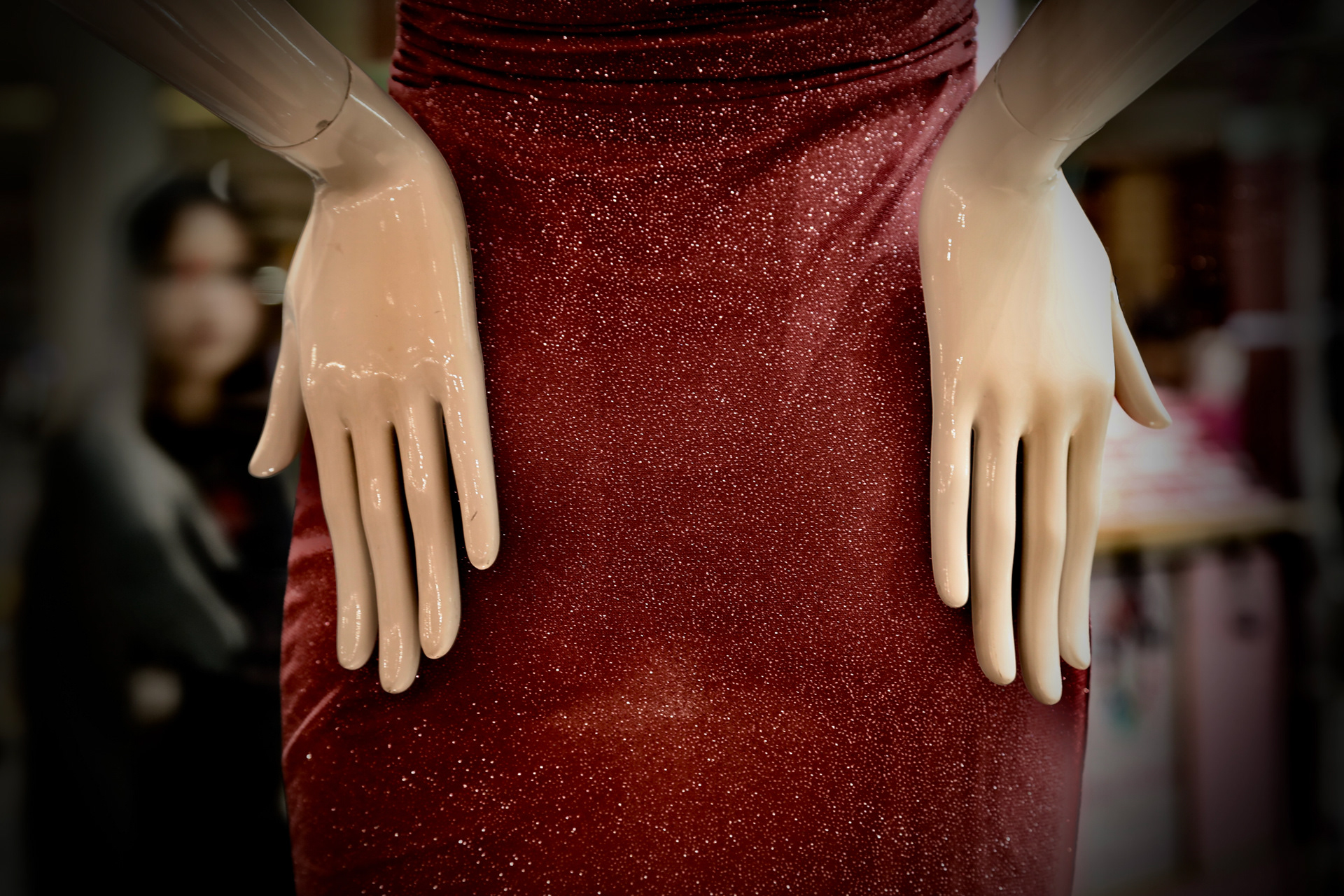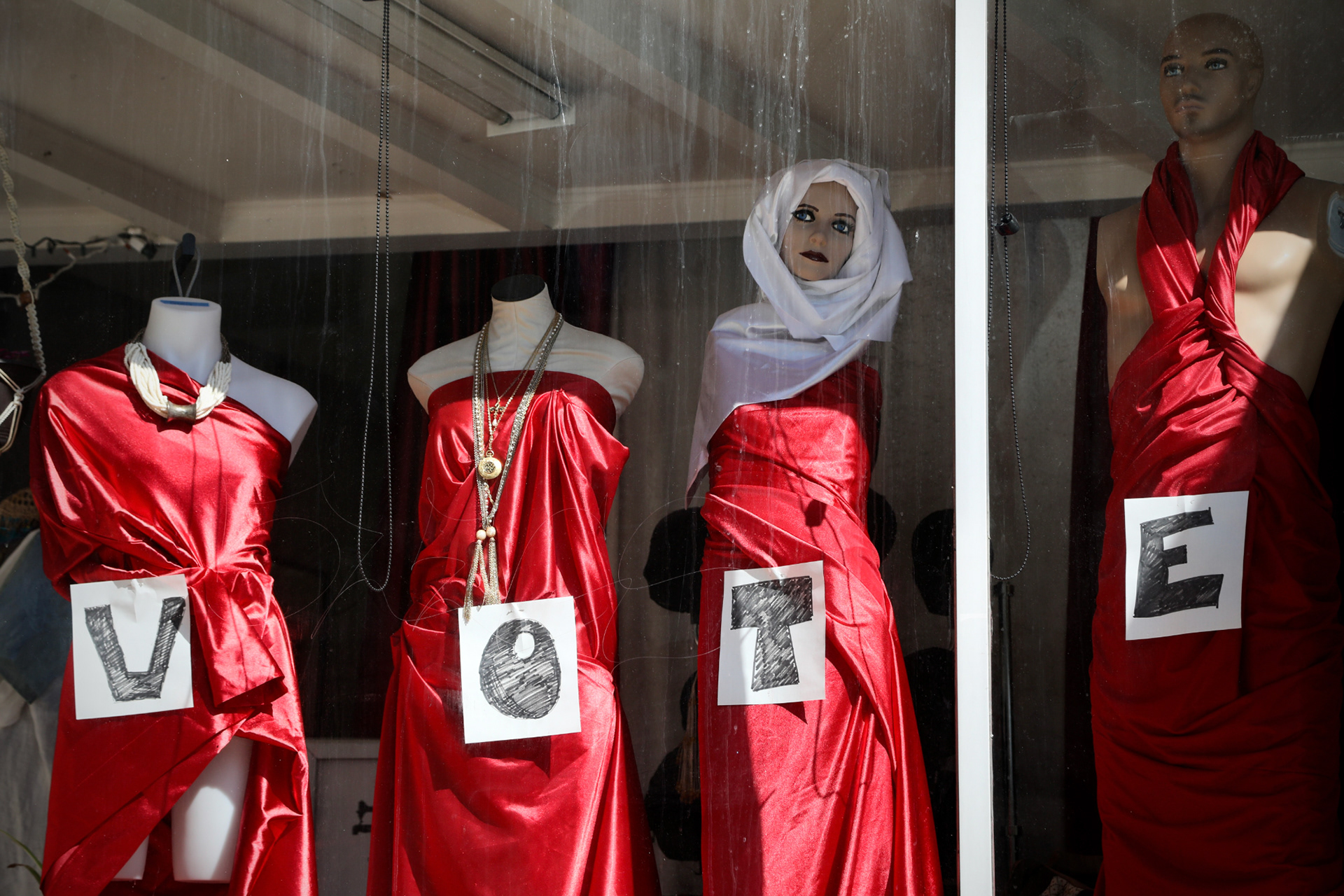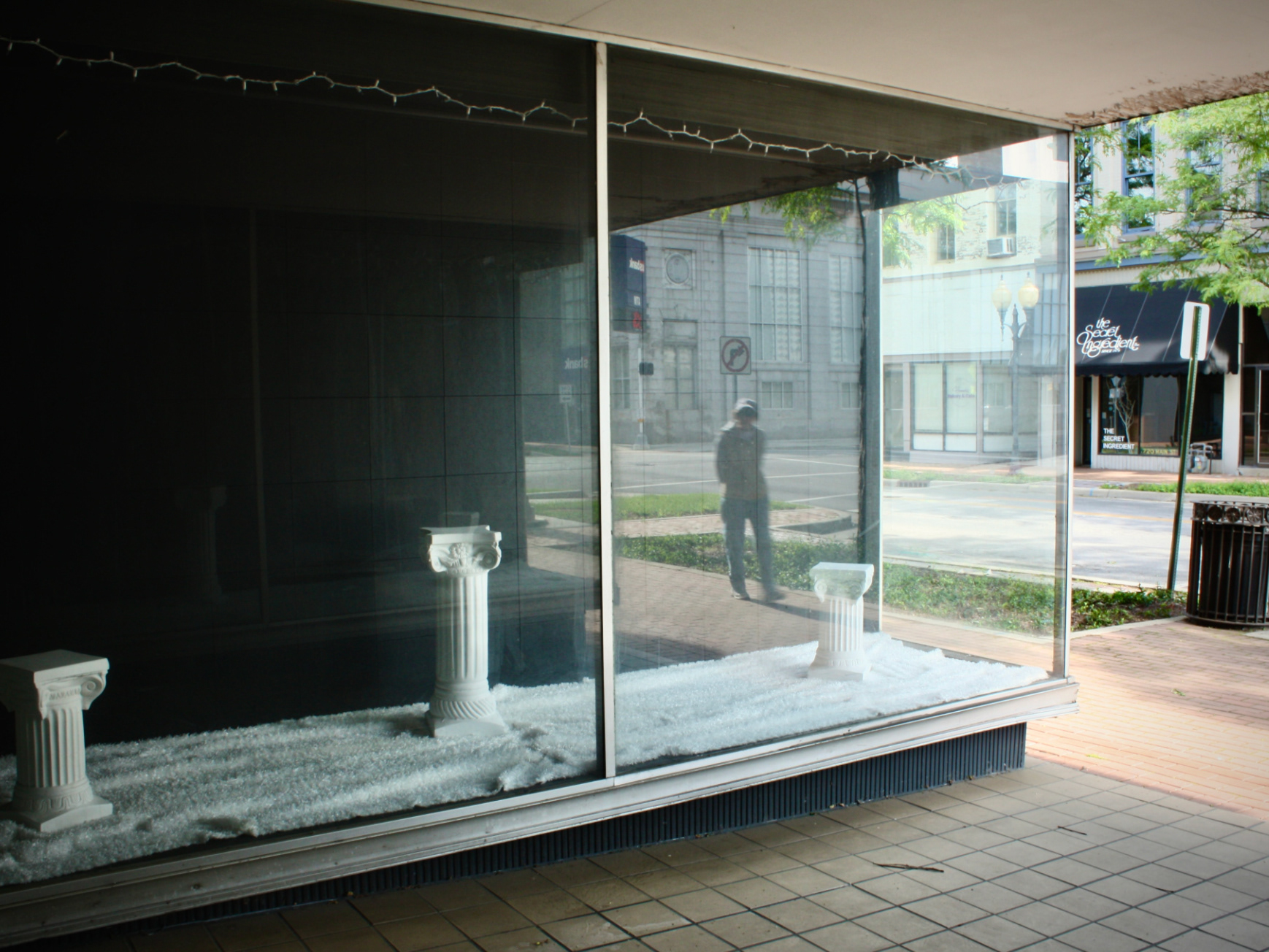Mannequins, docile figures representing commercial culture and desired societal mores, animate store windows. In this era of mass production, prefabricated models replace the original tailor’s dummy which facilitated the creation of custom-fit, luxury garments. Contemporary mannequins instead don readymade clothes and unwittingly expose mass-market depersonalization; as such, they risk becoming passive objects of visual pleasure that suggest bodies are for sale. Yet these surrogate human forms simultaneously provide a surface for both storeowners and shoppers to project real and imagined selfhood. Glass Cages showcases a diverse array of mannequins uniquely displayed in towns across the United States. Focusing on prototyped bodies that break conventional molds, the project challenges the consumerist gaze.
To view full screen click on any image; swipe to move through the portfolio.

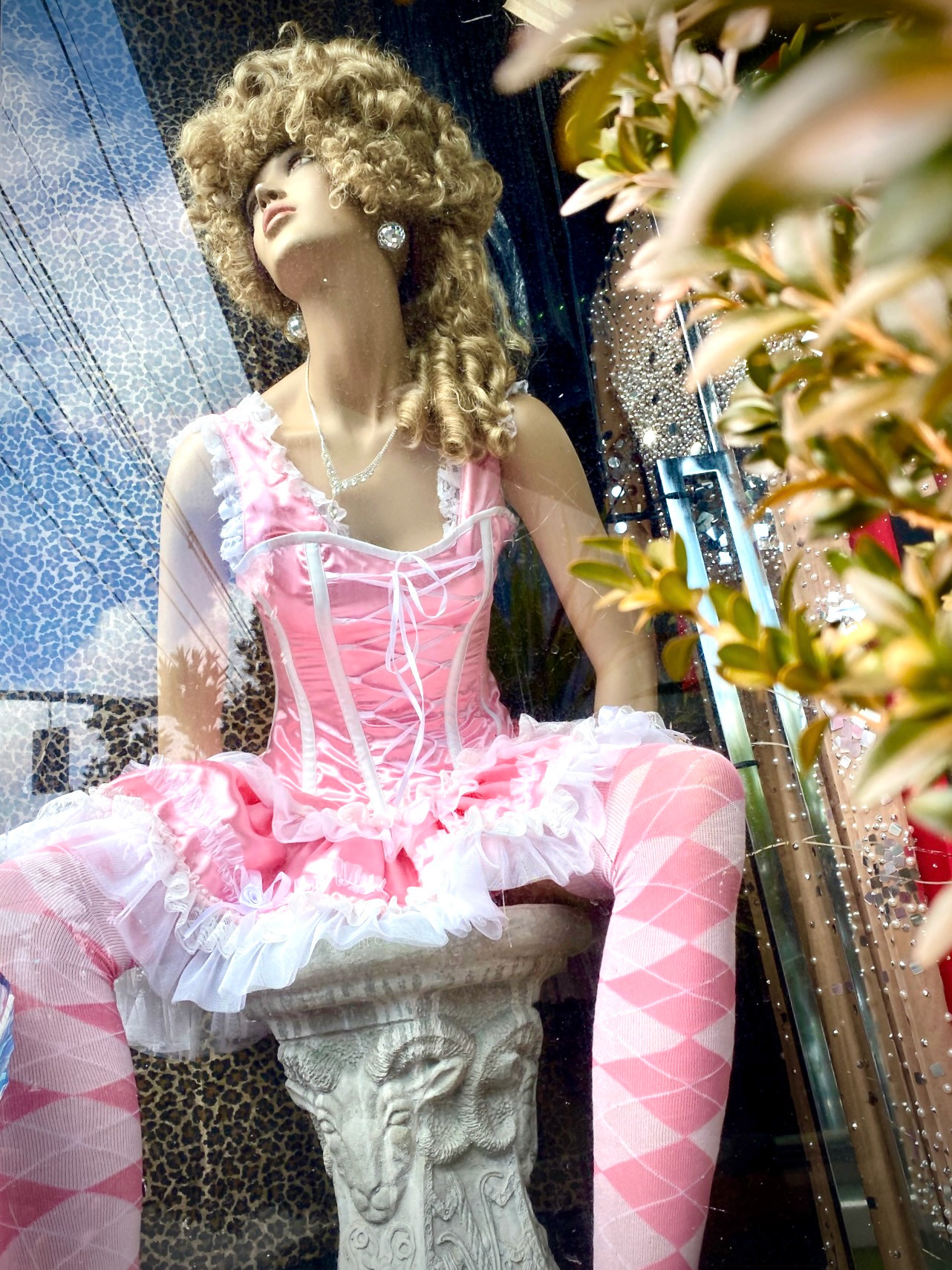
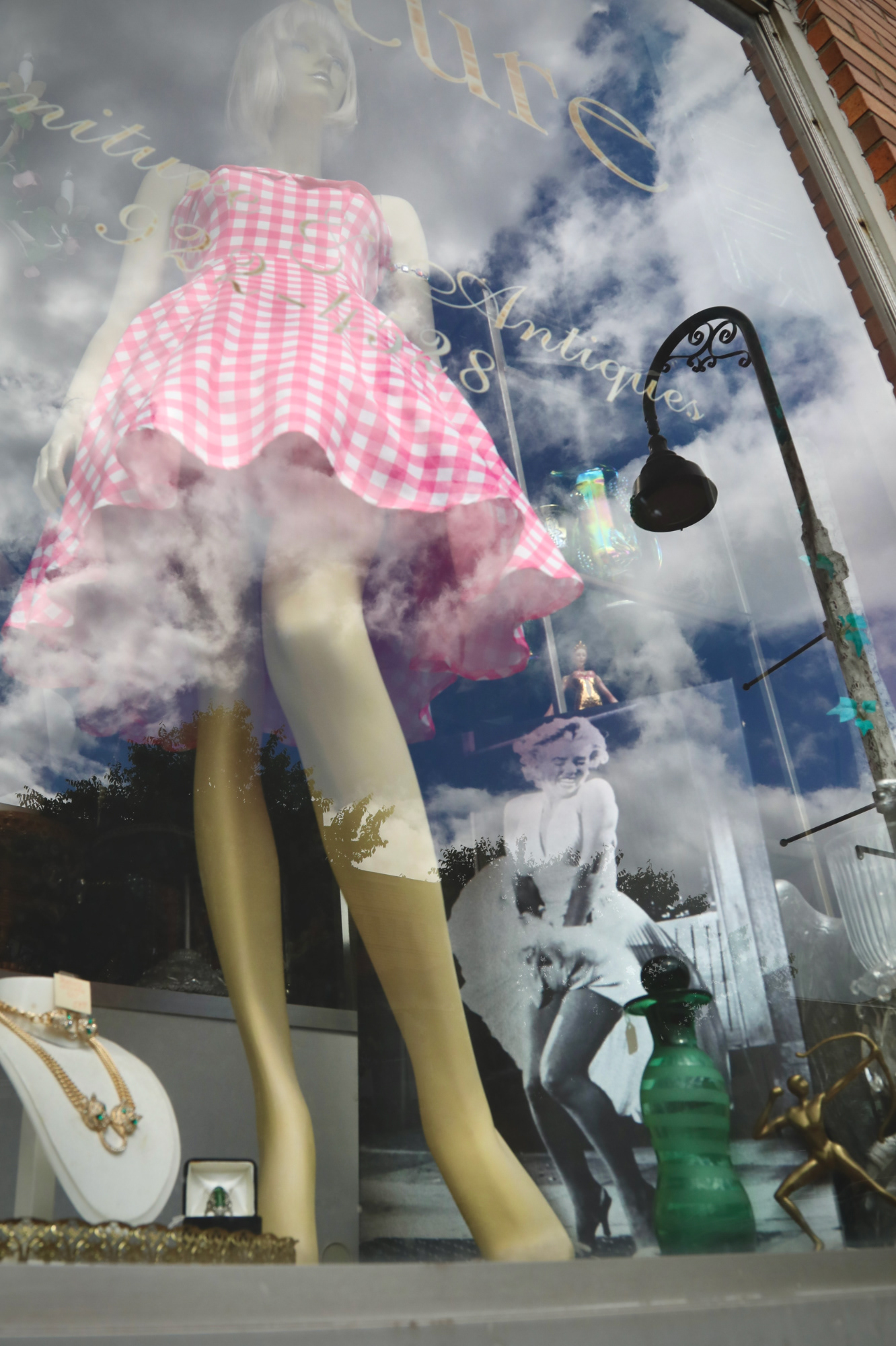


Glass Cages evokes the “to-be-looked-at-ness” quality of zoos with exotic animals safely contained within the strict confines of simulated habitats, exhibited for the amusement of passersby. The title further alludes to the proverbial glass ceiling - discriminatory biases and social barriers preventing women and minorities from advancement.

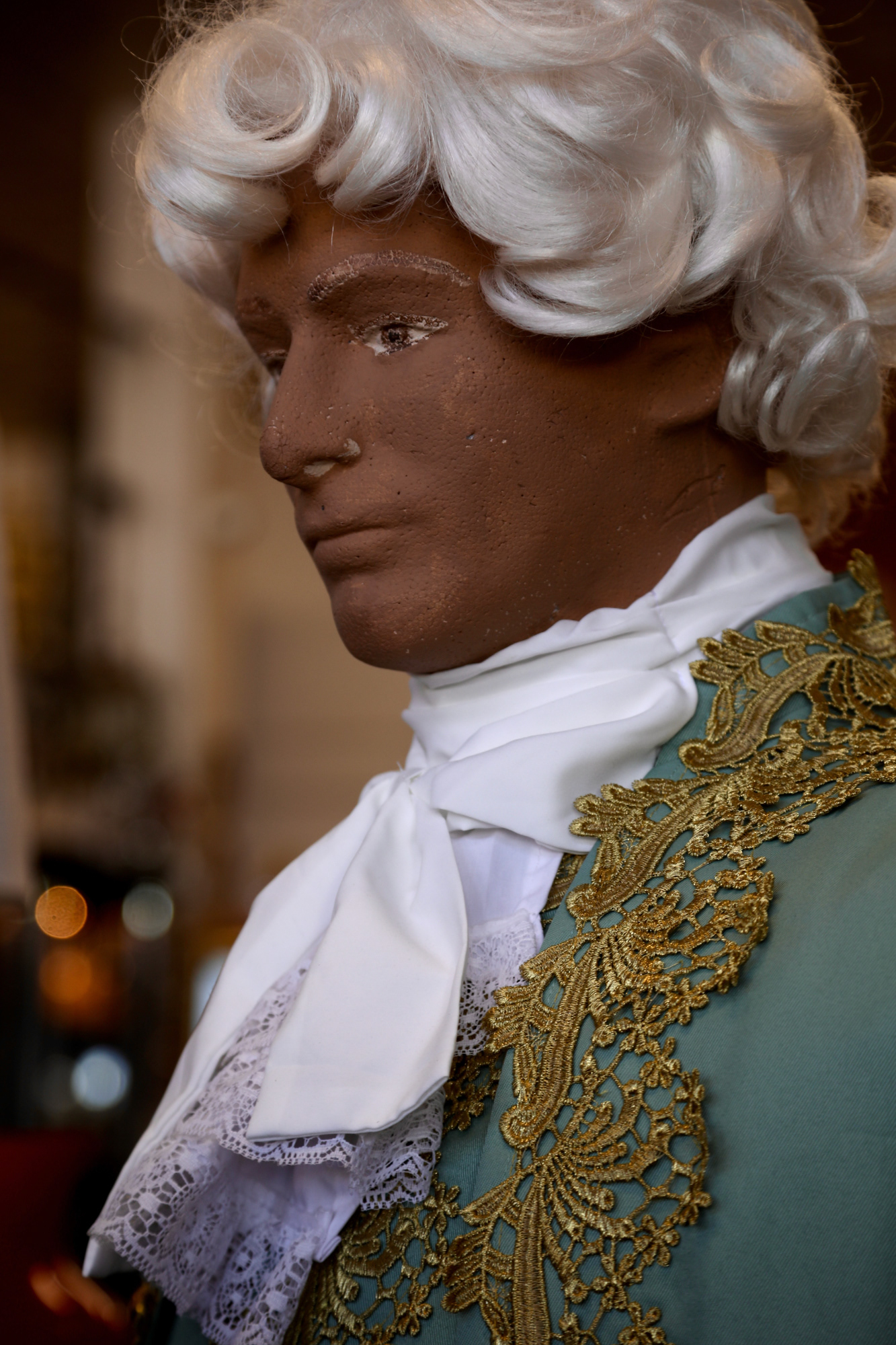
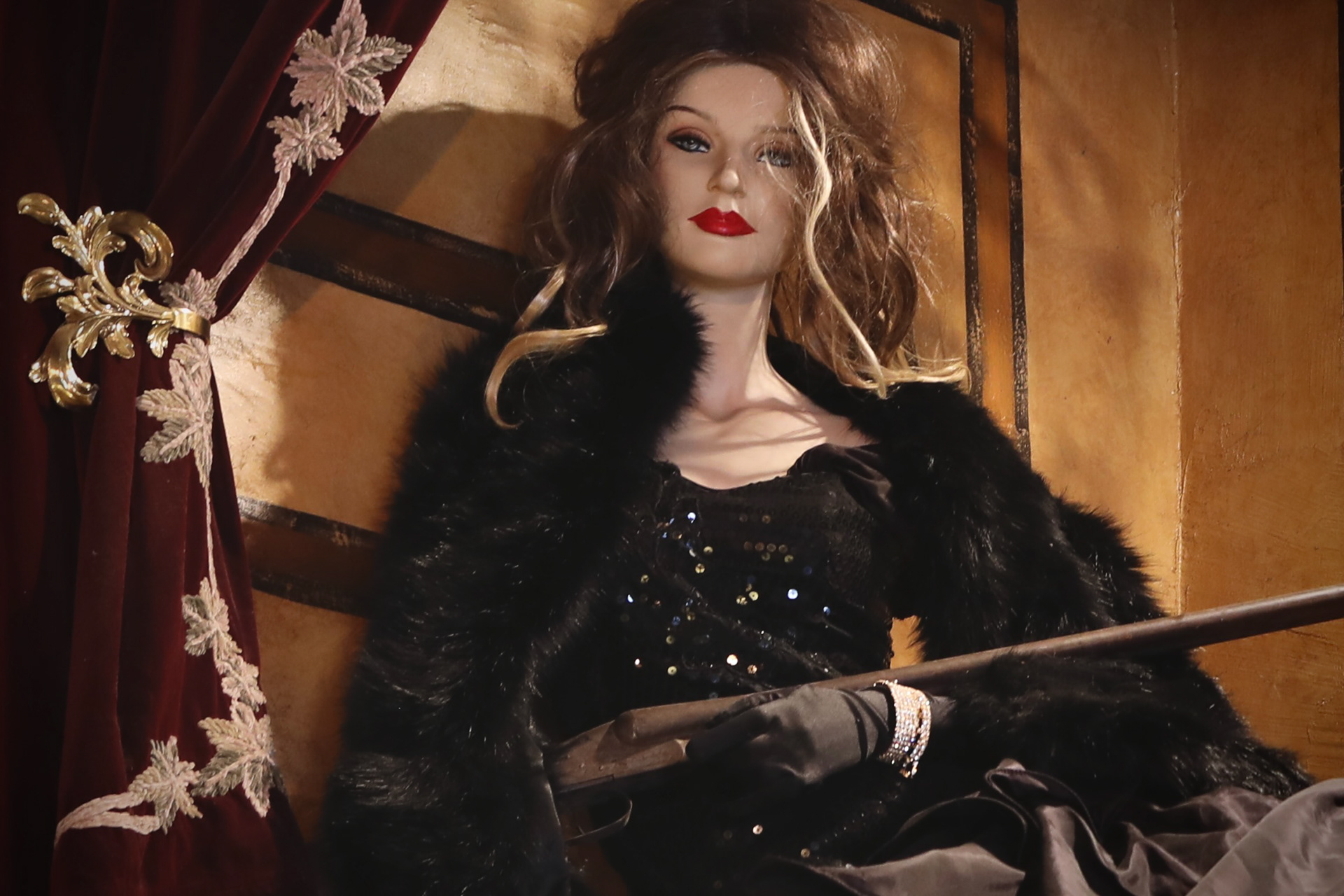

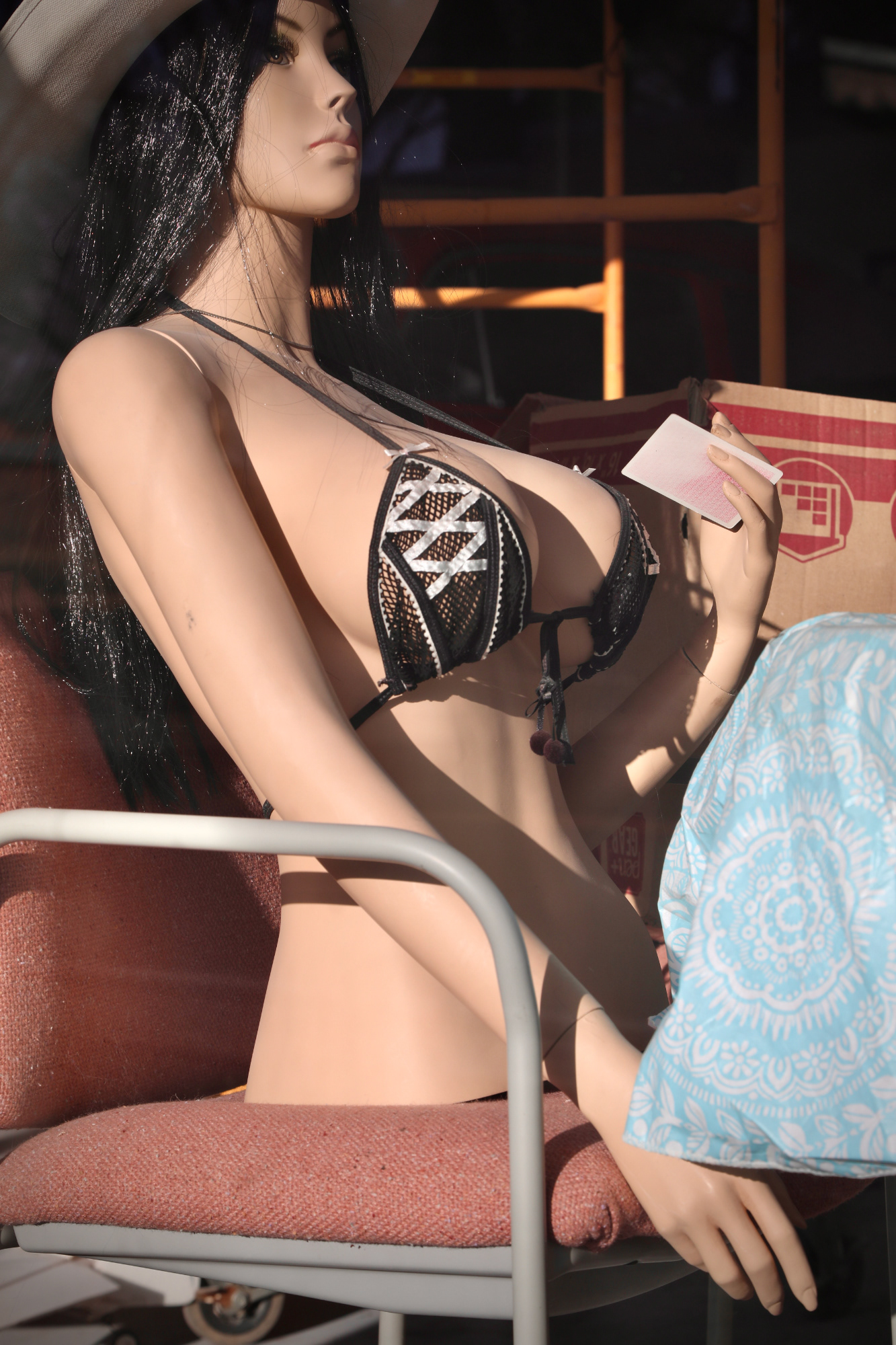
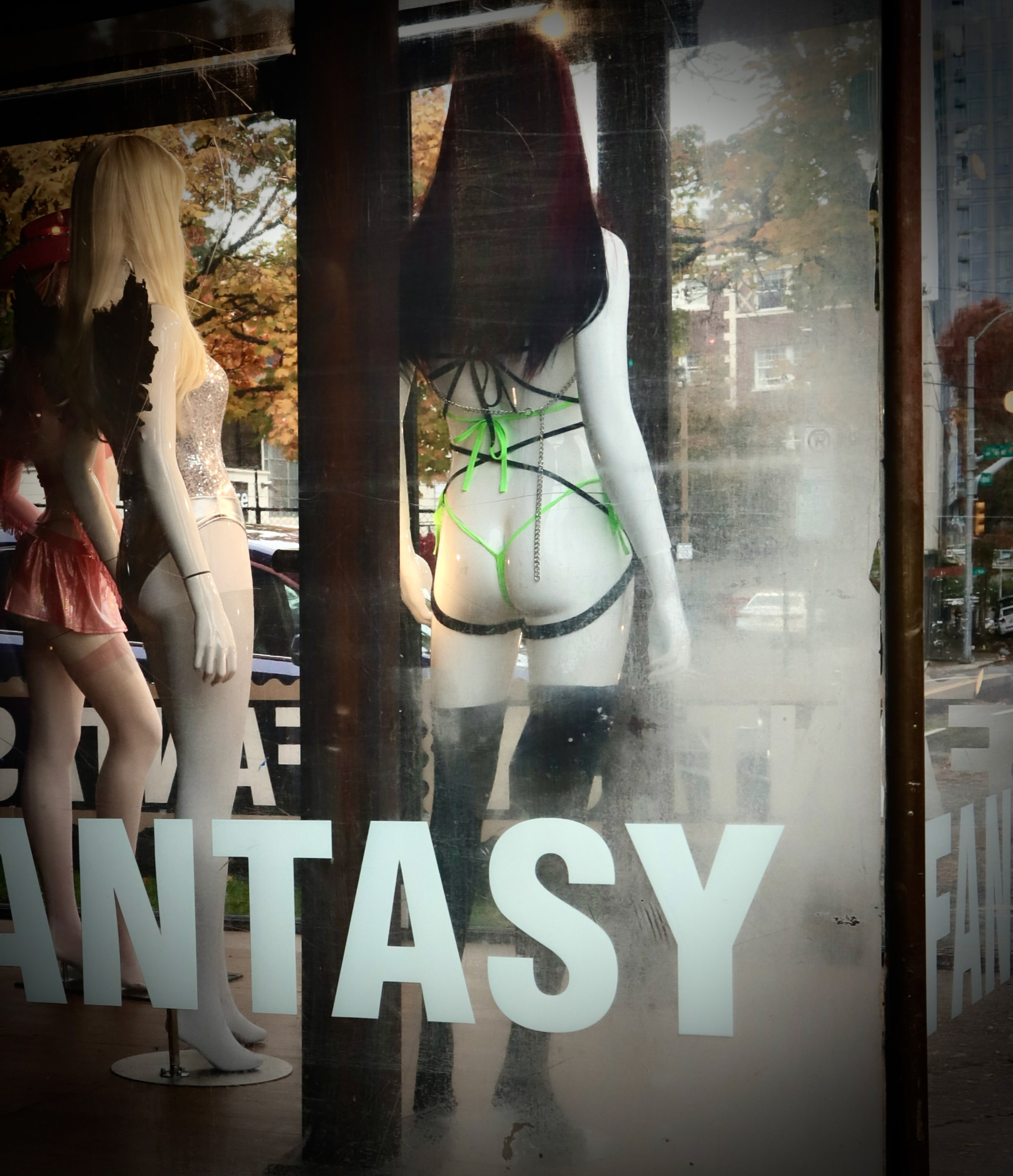
Glass Cages blends documentary, fashion, and portraiture to re-envision mannequins as agents of resistance to both industry standardization and gender norms. Viewed this way, these transgressive models transcend their role as mere window dressing.
